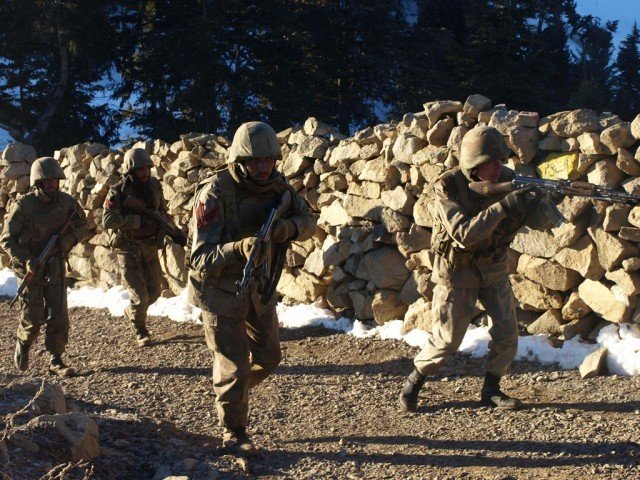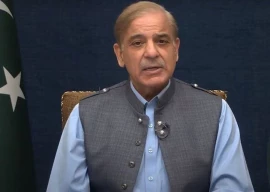
“Al Qaeda’s presence in the [South Asia] region continued to face pressure from international, Afghan and Pakistani forces, and Pakistan’s ongoing offensive in the North Waziristan Agency [has] further degraded the group’s freedom to operate,” stated the Country Reports on Terrorism 2014, published by the State Department on Friday.
“South Asia remained a frontline in the battle against terrorism [in 2014]… [But] pressure on al Qaeda’s traditional safe haven has constrained its leadership’s capability to communicate effectively with affiliate groups outside of South Asia,” it said.
Read: Army chief vows ‘terror-free’ Pakistan
The report noted that Pakistan's military conducted ‘significant counter-terrorism operations’ in North Waziristan and Khyber Agency, while the country’s law enforcement and security agencies carried out raids in the country’s provinces. "Security forces intercepted large stockpiles of weapons and explosives, and discovered bomb-making facilities and sophisticated telecommunication networks," it said.
Even so, some groups continued to find space to orchestrate and launch attacks into Afghanistan and against minorities in Pakistan, the report pointed out. It said that while operations carried out by Pakistan’s military and security forces disrupted the actions of many militant outfits in the country, groups like the Afghan Taliban, the Haqqani Network and Lashkar-e-Taiba were spared by the offensive.
And while it acknowledged Pakistan as a critical counter-terrorism partner of the US, the report noted that cooperation in this regard between Islamabad and Washington in 2014 had been ‘mixed’. “Pakistan continued to deny visas for trainers focused on law enforcement and civilian counter-terrorism assistance,” it said.
Read: National Action Plan plugged terror funding: Bajwa
The report also stressed the need for improvement in Pakistan’s national security and law enforcement infrastructure. It said that while the government rolled out many counter-terrorism plans, it failed to implement any of them completely.
“Pakistan promulgated a National Internal Security Plan (NISP) in February 2014, but failed to implement most of initiative. The National Counter Terrorism Authority (Nacta), which was formed under NISP, remained ineffective throughout the year due to the budgetary and bureaucratic reasons,” it said.
The report lauded the government’s efforts to reinforce legislation against terrorism and blamed the judiciary for slow processing of terrorism and other criminal cases.
On the other hand, it lauded the efforts of Federal Bureau of Revenue to counter bulk cash smuggling and acknowledged the initiatives of Pakistan Customs, which launched the End Use Verification (EUV) project to facilitate the entry of dual-use chemicals for legitimate purposes, while also investigating and preventing the entry of chemicals intended for use in IEDs.
Read: Pakistan should handover militants to Afghanistan in bid to revive peace talks: Senate panel
At the same time, the report said, there is a need for improvement with respect to kidnapped US citizens.
Karachi in spotlight
The report noted that Karachi continued to suffer from political and ethnic violence by different groups, including militant organisations, fundamentalist groups, and the militant wings of political parties.
It added that some militant groups had garnered enough momentum to start asserting control over political parties and criminal gangs operating in the city and other areas in southern Sindh.
Global 'terror' death toll soared in 2014
According to the report, the global death toll from terrorism soared by 81 per cent in 2014 with more than 1,100 assaults a month.
There were 13,463 attacks in 95 countries in 2014 – up by a third from the year before – with Iraq, Pakistan and Afghanistan bearing the brunt of the violence.
Islamic State (IS) militants carried out the largest number of attacks, unleashing 1,083 assaults last year. The Taliban were the next most lethal group, with 894 attacks.









1726732405-0/Express-Tribune-Web-(15)1726732405-0-270x192.webp)







COMMENTS (60)
Comments are moderated and generally will be posted if they are on-topic and not abusive.
For more information, please see our Comments FAQ